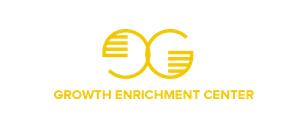
Imagine how your decisions could be subtly influenced by confirmation bias without you even realizing it. The impact of this cognitive bias on your thought process and choices can be profound, shaping the way you perceive information and reinforcing pre-existing beliefs. But what if there are ways to navigate these biases and access a more objective decision-making approach? Stay tuned to uncover strategies that can help you navigate the intricate web of confirmation bias and empower you to make more informed and thoughtful decisions.
Influencing Perceptions
When making decisions, it's crucial to be aware of how confirmation bias can subtly influence your perceptions, potentially leading to skewed judgment. Your mind naturally seeks out information that confirms your existing beliefs and disregards anything that challenges them. This tendency can cloud your judgment and prevent you from seeing the full picture objectively.
Imagine you're considering a career change. If you already believe that your current job is unfulfilling, you might only notice information that supports this view while overlooking the positives. This selective attention can hinder your ability to make a well-rounded decision based on all available information.
Reinforcing Assumptions
When reinforcing assumptions, you may unknowingly strengthen your existing beliefs, potentially closing yourself off to alternative perspectives. It's critical to recognize this tendency in decision-making to make sure you're making well-rounded and informed choices.
Strengthening Existing Beliefs
To reinforce assumptions is a common tendency that many individuals exhibit when seeking to strengthen their existing beliefs. It's natural to want to feel secure in what you already know and believe. However, it's important to remember that this can sometimes lead to confirmation bias, where you only seek out information that supports what you already think.
By being aware of this tendency, you can actively work to challenge yourself. Embrace opportunities to explore different perspectives and new information. This openness can lead to personal growth and a more extensive understanding of the world around you.
Limiting Alternative Perspectives
If you find yourself consistently seeking out information that aligns with your existing beliefs, you may inadvertently be limiting alternative perspectives and reinforcing your assumptions. This tendency can hinder your ability to make well-rounded decisions. To combat this, try the following:
- Seek Diverse Sources: Actively look for information from a variety of viewpoints to challenge your assumptions.
- Encourage Debate: Engage in discussions with others who hold different perspectives to broaden your understanding.
- Practice Empathy: Put yourself in the shoes of those with opposing views to gain insight into alternative perspectives.
Limiting Information Intake

When making decisions, it's common to filter out opposing views and ignore new perspectives that challenge our beliefs. By limiting the information we take in, we might unintentionally reinforce our existing assumptions and miss out on valuable insights.
Filtering Out Opposing Views
When you limit the intake of information by filtering out opposing views, you risk falling into the trap of confirmation bias, hindering your ability to make well-informed decisions. It's important to explore information that aligns with your existing beliefs, but it's essential to contemplate diverse perspectives to make sound choices.
By filtering out opposing views, you may:
- Miss valuable insights that could challenge your assumptions.
- Fail to see potential flaws in your reasoning.
- Exclude innovative solutions that deviate from your current stance.
Embrace the opportunity to broaden your understanding by actively engaging with differing opinions. Remember, true growth and wise decision-making often stem from welcoming diverse viewpoints.
Ignoring New Perspectives
To truly expand your horizons and enhance your decision-making skills, actively seeking out and considering new perspectives is paramount. When you ignore new perspectives, you limit your information intake, leading to a narrow understanding of situations.
Embracing diverse viewpoints opens up a world of possibilities, allowing you to make more informed and well-rounded decisions. By actively seeking out differing opinions, you challenge your preconceived notions and biases, fostering growth and development.
Ignoring Contradictory Evidence
In the decision-making process, it's common to fall into the trap of ignoring contradictory evidence, leading to a skewed perception of reality. When you dismiss information that challenges your beliefs or decisions, you risk making choices based on a limited understanding of the situation.
Here's how ignoring contradictory evidence can impact your decision-making:
- Limits Growth: By shutting out opposing viewpoints, you miss valuable opportunities for learning and growth.
- Increases Risk: Ignoring contradictory evidence can increase the likelihood of making risky decisions with unforeseen consequences.
- Impairs Judgment: Focusing only on information that aligns with your preconceptions can cloud your judgment, leading to faulty reasoning and flawed choices.
Fostering Overconfidence

Fostering overconfidence can blind you to potential pitfalls and hinder your ability to make well-informed decisions. When you become overly confident in your beliefs or abilities, you may start ignoring warning signs or dismissing valuable feedback. This can lead to taking unnecessary risks or making choices without considering all the facts.
Overconfidence often stems from a desire to feel secure in your decisions, but it's crucial to remember that being open to feedback and staying humble are key components of making sound judgments. By acknowledging that you mightn't have all the answers and being receptive to different perspectives, you can avoid the trap of overconfidence.
To combat overconfidence, challenge yourself to seek out diverse opinions, question your assumptions, and remain adaptable in your thinking. Remember, true confidence comes from a balance of self-assurance and openness to new information. Embrace a mindset that values learning and growth, and you'll be better equipped to make decisions that are grounded in reality rather than inflated by overconfidence.
Polarizing Beliefs
Blindly holding onto polarizing beliefs can create barriers to understanding and collaboration, hindering your ability to make informed decisions. When you allow these beliefs to cloud your judgment, you limit your growth and the potential for meaningful interactions. Embracing a mindset open to different perspectives can lead to better outcomes and enriched relationships.
- Embrace Diversity: Acknowledge the value that diverse opinions bring to the table. Engaging with viewpoints different from your own can broaden your understanding and lead to more well-rounded decisions.
- Practice Empathy: Put yourself in the shoes of others to grasp their viewpoints fully. Empathy fosters compassion and allows for more effective communication, paving the way for collaboration.
- Seek Common Ground: Focus on shared values and goals rather than differences. Finding common ground can bridge divides and foster a sense of unity, enabling more constructive decision-making processes.
Perpetuating Stereotypes

Recognizing the importance of challenging stereotypes can hinder your ability to truly understand others and make well-informed decisions. Acknowledging that stereotypes are often based on limited information or preconceived notions that may not reflect the true diversity and complexity of individuals is crucial. By relying on stereotypes, you risk oversimplifying people and situations, leading to biased judgments and missed opportunities for genuine connections. Embracing diversity and challenging stereotypes can open up a world of new perspectives and enrich your decision-making process.
When you perpetuate stereotypes, you limit your capacity to appreciate the uniqueness of each individual. Everyone has a story, experiences, and qualities that defy categorization. By breaking free from stereotypes, you empower yourself to see people for who they truly are, beyond labels or assumptions. This shift in perspective not only enhances your understanding of others but also cultivates a more inclusive and empathetic approach to decision-making. Remember, every person deserves to be seen and understood on their own terms. Challenge stereotypes, embrace diversity, and watch how your decisions become more informed and compassionate.
Frequently Asked Questions
How Can Confirmation Bias Affect Personal Relationships?
In personal relationships, confirmation bias can lead you to see only what you want to see, overlooking red flags or dismissing differing perspectives. Stay open-minded, listen actively, and challenge your assumptions to foster healthy connections.
Is Confirmation Bias More Prevalent in Certain Cultures?
Are you aware of how culture influences confirmation bias? Different cultural norms and values can shape the way information is interpreted and filtered, potentially making confirmation bias more prevalent in certain cultures.
Can Confirmation Bias Be Unlearned or Mitigated?
You can unlearn and mitigate confirmation bias by actively seeking diverse perspectives, questioning your assumptions, and being open to changing your mind. Embrace curiosity and challenge your beliefs to make more informed decisions.
What Role Does Confirmation Bias Play in Organizational Decision-Making?
In organizational decision-making, confirmation bias can cloud judgment, leading to flawed conclusions. Remember: "Look before you leap." Stay open-minded, seek diverse perspectives, and challenge your assumptions to make more informed and unbiased choices.
Are There Any Benefits to Confirmation Bias in Decision-Making Processes?
When you consider the benefits of confirmation bias in decision-making processes, it's important to recognize how it can provide a sense of security and confidence. However, it's crucial to balance this with openness to different perspectives for well-rounded decisions.
Conclusion
As you reflect on the impact of confirmation bias on decision-making, remember that being aware of this cognitive bias is the first step towards overcoming it.
By actively seeking out diverse perspectives, challenging your assumptions, and remaining open to feedback, you can break free from the limitations of confirmation bias and make more balanced and well-informed choices.
Embrace the journey of growth and self-discovery, for it's in these moments of reflection that true wisdom is found.

